
Verjus is a world-renowned juice created from pressed young grapes. It gives food a distinctive aroma and crispy, sweet tartness to its taste.
Many cultures feature this gently acidic drink in their classic cuisine, especially those in the Euro-Asian belt.
The name Verjus translates to green juice, referring to the famous, beloved extraction of unripe fruits.
You get red, and white Verjus separated from raw, unripe grapes, which are first crushed and then squeezed. There is no fermentation process involved in making Verjus non-alcoholic.
Even though this delicacy’s flavor is unmissable and hard to replicate, few good alternatives are available. Here are the five best substitutes for Verjus when you’re in a pinch and can’t find any.
What Is The Best Verjus Substitute?
Here’s a breakdown of the four best substitutes for Verjus. They all work great in food but don’t try substituting in cocktails.
Remember, each one will change the taste of your food uniquely, so think carefully about which you’re going to try.
1. Vermouth
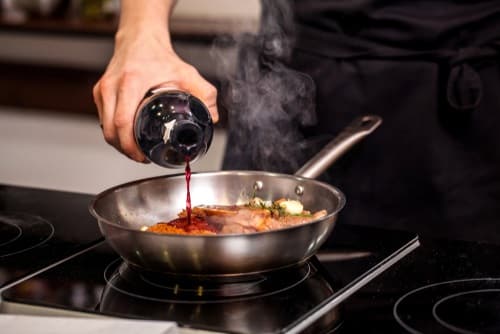
Vermouth is a cooking wine with a strong, spicy, sweet flavor. Hints of seasoning come through prominently, and the aroma is unmistakable.
Most chefs opt for Vermouth as their prime alternative to Verjus. Use dry Vermouth for most meals, whereas sweet Vermouth is better for red Verjus recipes.
Work sparingly with Vermouth to taste the alcohol, and hints of seasoning can become too prominent if you accidentally add too much.
2. White wine vinegar
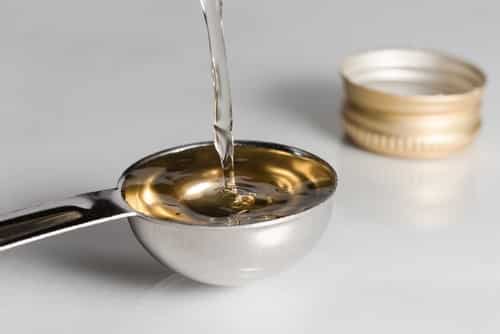
White wine vinegar may come with a slightly sour taste that’s not present in Verjus, but it’s one of the closest matched tastes you’ll get.
Go for the highest quality you can afford. A little goes a long way, and the flavor is vastly superior when you buy a product that’s been processed at high standards.
You can optionally add sweetness, but most chefs find the tartness of white wine vinegar enough on its own. Most of the sour taste cooks away by the time your meal is done and served.
3. White wine

White wine is a trusted cooking aid for communities all around the world. Throughout history, cooking wines have been used in all types of food.
Like Verjus, white wine is extracted from mostly unripe grapes, but the fermentation gives it a much stronger flavor and a bold, lingering taste of alcohol.
The right type of white wine will have a similar tartness to Verjus. If you’ve got a choice, use a very young white wine.
Ideally, it should be as astringent as possible. Adding honey will adjust a dry white wine closer toward a sweet balance.
4. White vinegar
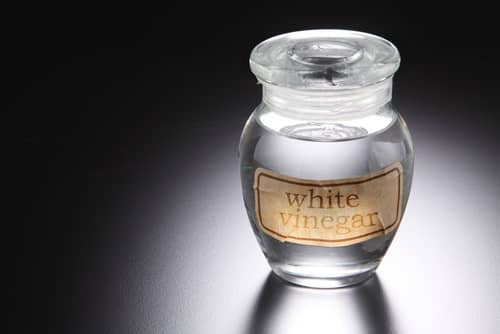
One may find it surprising to know that white vinegar is a good substitute for Verjus. Keep in mind that Verjus is mildly acidic, which makes vinegar a good match. You’ll have to use less in quantity.
Still, the weak dilution of acetic acid and around 94% water presents a solution that can bring out the same savory sweetness when appropriately used.
Some cooks recommend that you add a little sugar to the white vinegar to bring a similar sweetness.
5. Lemon juice
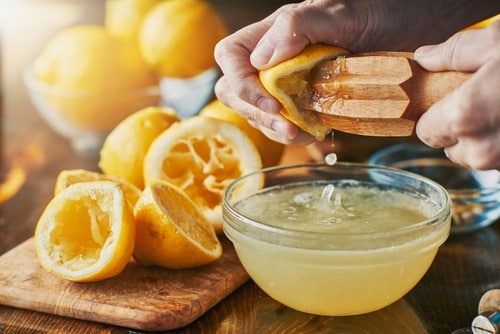
Lemon juice is a worthy alternative to Verjus but not really an excellent substitute. It lacks the aroma and rich, complex tartness of Verjus and other substitutes.
The mildly acidic, sourish taste makes it suitable when you don’t have anything else, but don’t expect the same result.
Substituting with lemon juice will significantly change your recipe‘s flavor, but always adding its own pleasant spin rather than ruining the taste.
What If I Don’t Have Any Of The Verjus Substitutes Mentioned Above?
If you don’t have any of the substitutes for Verjus suggested above, why not try making your own at home?
Remove all the stems and seeds from a bunch of grapes. Run them through a meat grinder or food processor on coarse, grinding, or pulsing until you have a slurry of grape juice and pulp.
Extract through a fine sieve or cheesecloth, and you’re left with one of the best substitutes for Verjus around.
Conclusion
Every brand of Verjus will have its own distinct taste. Even though they are all closely matched, the grapes’ origin and exact processing method will change the flavor.
This is why we recommend that you taste various types of Verjus to make a comparison and find which suits you best. You may find a particular brand works well for specific recipes.
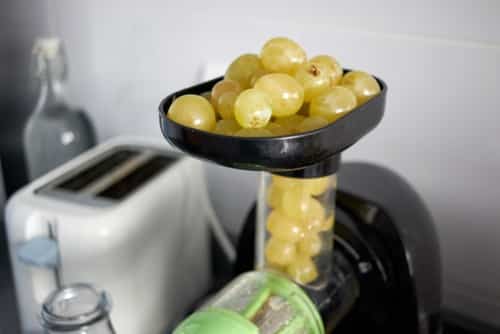
Verjus isn’t something that you should be trying to swap out for a substitute. It’s not an easy taste to replicate. If you can’t find it in your grocery store, try looking for ‘Verjuice’ as it is also referred to instead.
The flavor profile, aroma, and impact on food are too distinct from using an alternative and expecting the same result.
However, we hope that these recommendations help you whip up the perfect meal in those times when you can’t get a hold of any.
Which is your favorite substitute for Verjus? We encourage you to try our suggestions and let us know what you think in the comments below.